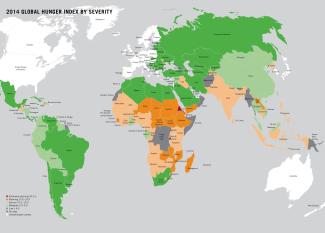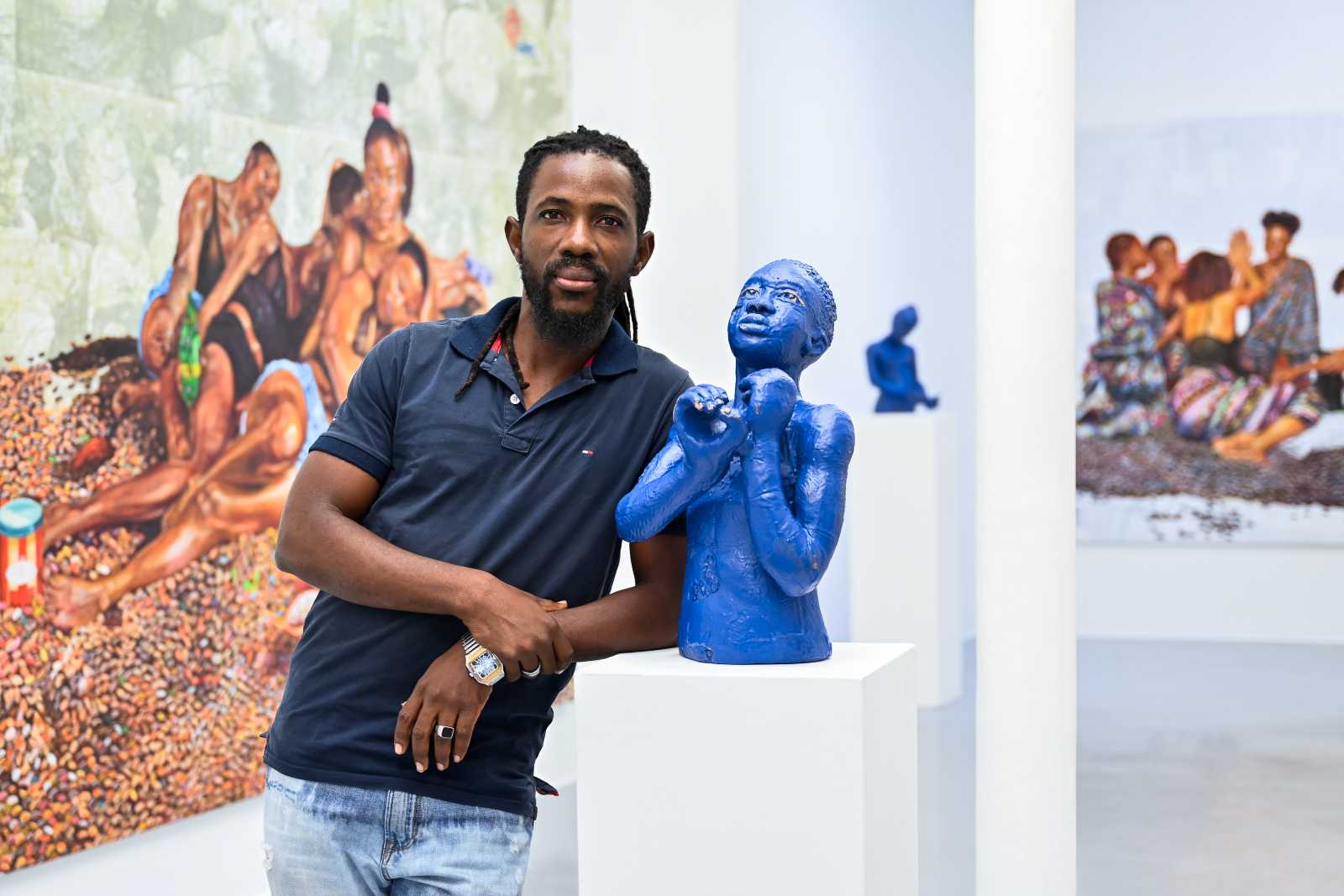News
In brief

More than 800 million suffer hunger
The recently published Global Hunger Index (GHI) 2014 shows that the number of people who suffer hunger has gone down to currently 805 million from about 1 billion at the end of the past decade. Nonetheless, matters remain worrying. According to the WHI, the situation is “alarming” or even “extremely alarming” in 16 countries. Eritrea and Burundi are stated to be the worst affected. The lack of micronutrients, which experts call “hidden hunger”, is another serious issue, according to GWI. Some 2 billion people are estimated to be affected.
Violent strife in countries such as Syria, Iraq or South Sudan is compounding food insecurity, says Bärbel Dieckmann, the president of Welthungerhilfe, the German charity that publishes the GHI annually in cooperation with the International Food Policy Research Institute (IFPRI) and the Irish aid agency Concern Worldwide. Dieckmann points out that refugees are exposed to an “increased risk of food insecurity, malnutrition and illness”.
The long term trend looks good however. In 1990, about 19 % of the 5.3 billion people who populated the Earth were suffering hunger. The share has been reduced to about 11 %. The absolute number of the people suffering hunger has gone down by
200 million, while the world population has grown to 7.3 billion. According to the GHI, 26 countries have reduced their index figure at least by 50 % since 1990. (sb)
Link:
Global Hunger Index 2014
Peruvian prosecutor to head TI
José Carlos Ugaz is the new chair of the global anti-corruption network Transparency International (TI). The prosecutor from Peru has an international reputation for investigating the cases of former Peruvian President Alberto Fujimori and his secret-service chief Vladimiro Montesinos. Fujimori is in prison today. He was sentenced to 25 years for corruption and human-rights abuses. Ugaz has led investigations against more than 1500 civil servants in Peru, ensuring that hundreds of high-ranking officers were brought to court.
Ugaz has been leading the national chapter of TI in Peru since 2002. From 2004 to 2006, he worked for the World Bank, contributing to its anti-corruption efforts. Observes say that he may make TI a more confrontational organisation. In the election at TI’s annual meeting in Berlin, he prevailed against Pascal Lamy, a French politician who formerly served as EU commissioner for trade and later as director general of the World Trade Organisation. Lamy is generally considered to be a competent diplomat, whereas Ugaz is known for his tough and determined stance. The TI website quotes his statement: “The corrupt need to see Transparency International as their biggest fear. Nobody is above the law.”
Elena Panfilova was chosen to be TI’s vice-chair. She is the founder and leader of TI Russia. The annual assembly adopted a resolution demanding more space for civil society. Independent organisations can be a powerful force in the fight against corruption. (emv)
Raising social standards in textile industry
In October, a new Textiles Alliance was founded in Germany. The goal is to improve social and environmental standards in global supply chains. Gerd Müller, Germany’s federal minister for economic cooperation and development, had launched the process earlier this year. So far, about 30 companies and organisations have signed up to the Textiles Alliance. Its action plan was drafted in recent months by representatives of private-sector companies, civil society, trade unions and Müller’s federal ministry (BMZ).
At the founding event, Müller said: “We all agree that we do not want to wear clothes that were the cause of human-rights infringements, exploitation and poisoning elsewhere in the world.” To date, only few private-sector companies have committed to implementing the action plan however. Vaude, Hess Natur and Trigema have done so, but industry giants and the major trade associations have declined. They argue that the action plan is too demanding and thus unrealistic. In their eyes, it is impossible to monitor the entire supply chain.
Müller says that the doors to the Textiles Alliance will stay “open”. He expects participation to increase over time as no responsible company will be able to avoid the commitment to preventing environmental dumping, social dumping and child labour in its supply chain. The BMZ plans to put more pressure on textiles companies moreover. Early next year, it will launch a web portal that will provide consumers with informations concerning the reality of the textile industry and its various quality certificates. (dem)
Link:
Action plan of the Textiles Alliance
(in German only)
European award for Congolese doctor
Denis Mukwege, a gynaecologist from the DR Congo, is this years winner of the EU’s Sakharov Prize for Freedom of Thought. The 59-year-old physician is famous for treating raped and mutilated women in Bukavu in the eastern DRC. According to Mukwege, rape is a cheap, but “murderously effective” way of waging war. Sexualised violence has occurred on a large scale in the strife that has marked the DRC since the late 1990s. Mukwege has been targeted by militias and narrowly escaped death when he was attacked in 2012. He went into exile in Europe, but returned to the DRC in 2013. Women patients had asked him to do so. (sb)







